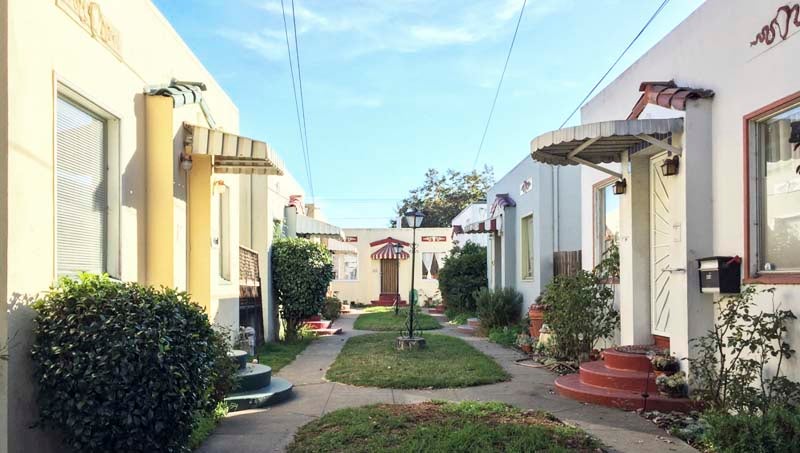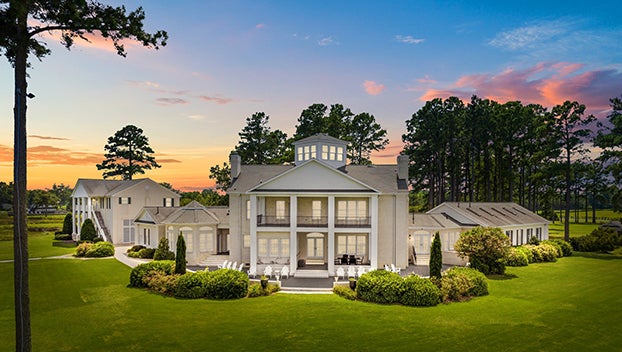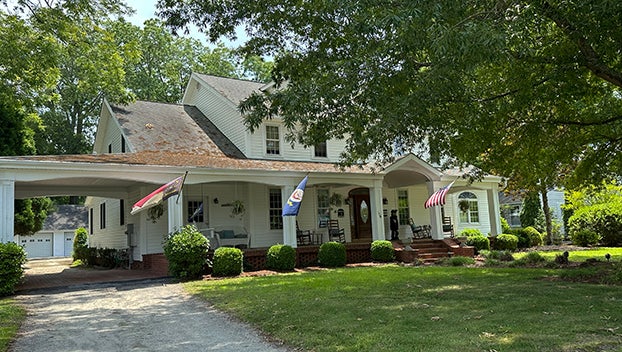Veterans outreach starts with historic Washington homes
Published 8:22 pm Thursday, January 19, 2017

- SHARED SPACE: Shared green space, connecting yards and lives, fosters a sense of community, a prime factor in Pamlico Rose Institute’s plan to provide housing to veterans with disabilities.
A casual stroll, a chance meeting and the discovery of a place one could call home has led to a plan to grow a community, preserve history and reach out to veterans.
The walk was taken by Rob and Allison Greene Sands one afternoon in 2015, when the couple made a random stop in Washington on their way back to northern Virginia from a road trip south. The chance meeting came when they stopped outside the Century 21 office on West Main Street, where they met real estate agent Alexis Davis. A conversation turned into a ride around to look at properties; a ride became purchasing a home here.
But that’s not where the story ends. As an anthropologist, Rob Sands has always been interested in historic preservation. Both the Greene Sands work for the U.S. Department of Defense and have a vested interest in the people who make up the armed services. They’re also behind the newly formed nonprofit Pamlico Rose Institute for Sustainable Communities. Its mission: growing a community in Washington, a community of a most deserved, but underserved population — veterans with disabilities.
“Washington and the historic district toggled something in me in that, ‘How can we bring those things together in a way that’s meaningful for the community?’” Rob Sands said. “I felt that Washington would perhaps be a place where we could explore how to reach out and make a difference.”
Making a difference for Sands means using a recent inheritance to kick off the program that would supply affordable housing to veterans with disabilities, helping to transition them back to civilian life by setting up support networks within a small, shared community, as well as tapping into resources available in the greater area.
Sands said re-urbanization in the country has opened up new models as to how to meet the needs of disabled veterans — specifically, a growing trend to create “pocket neighborhoods,” where houses are oriented toward a shared green space. These enclaves are not walled off from the outside world, but their arrangement is designed to promote social networking, interaction, social accountability and safety, according to Sands.
It’s an idea modeled on neighborhoods designed by architect Ross Chapin, and Sands believes it’s a good fit, as military base housing often follows the same blueprint.
Enter Washington’s historic district, where plenty of houses are in need of rehabilitation and repair.
“There exist houses like this in a row that are either endangered, vacant or in need of rehabilitation,” Sands said. “We’ve already identified areas here where this could happen.”
Sands said the plan would include modified pocket neighborhoods where historic, rehabbed homes are not oriented toward a central point; instead, their backyards are joined to create a common green space.
Another project on Pamlico Rose Institute’s agenda is a sober house for female veterans with substance abuse issues — issues sometimes triggered by past sexual assault and the resulting post-traumatic stress disorder.
“That population is underrepresented in the amount of funding and attention it gets,” Sands said.
Between female veterans and an estimated 25 percent of DOD troops returning home from deployment with PTSD since 2003, Sands said he doesn’t anticipate having any difficulty finding veterans to purchase homes in Pamlico Rose Institute enclaves. The homes, purchased and restored by Pamlico Rose Institute, would be sold to veterans at a lower cost than market value, and the Veterans Administration can help with zero-down mortgages.
Sands said he feels the Pamlico Rose mission meets needs on both sides: for veterans and for a historic district that, in some areas, has many distressed properties.
“What PRI is doing is banking on the future in developing the community here,” Sands said, adding that Washington’s sense of community would grow by coming together, overcoming uncertainties and supporting those who are different than themselves. “Engaging the community to support the veterans that spent time overseas, and came back the way they are, seems to be a way to open up communities. … That’s one of the strengths of community is to be able to fold people in.”
For Sands, Pamlico Rose Institute is carrying on the legacy of his mother, Betty Ann Sands, who he called “a quiet activist,” and who later in life became very active supporting precisely these types of initiatives.
“She definitely wanted to support programs that helped the marginalized and underrepresented,” Sands said.
Pamlico Rose Institute is actively soliciting support and reaching out to the VA, nonprofits, foundations and organizations, as well as scoping out properties to purchase. Another option is donation: property owners can donate unwanted real estate for a tax write-off.
For more information, visit www.pamlicorose.org or contact Rob Greene Sands at 805-320-2967 or robert@pamlicoroseinstitute.org.





